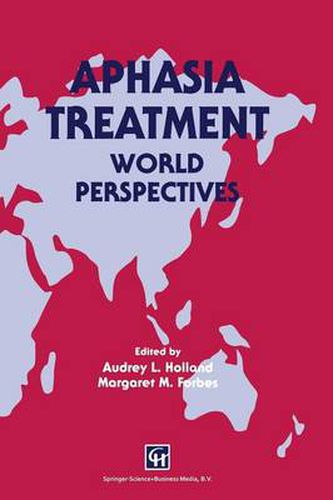Readings Newsletter
Become a Readings Member to make your shopping experience even easier.
Sign in or sign up for free!
You’re not far away from qualifying for FREE standard shipping within Australia
You’ve qualified for FREE standard shipping within Australia
The cart is loading…






This title is printed to order. This book may have been self-published. If so, we cannot guarantee the quality of the content. In the main most books will have gone through the editing process however some may not. We therefore suggest that you be aware of this before ordering this book. If in doubt check either the author or publisher’s details as we are unable to accept any returns unless they are faulty. Please contact us if you have any questions.
This volume encompasses the work of aphasiologists from 12 different countries. Each author describes the current status of aphasia therapy in their country and describes the methodology they employ for assessment and treatment. Despite the different languages and health care settings and policies, the assessment and treatment information is applicable to all clinicians working with aphasic patients. Readers will find approaches stemming from the authors’ diverse backgrounds in linguistics, neurology, psycholinguistics and neuropsychology.
$9.00 standard shipping within Australia
FREE standard shipping within Australia for orders over $100.00
Express & International shipping calculated at checkout
This title is printed to order. This book may have been self-published. If so, we cannot guarantee the quality of the content. In the main most books will have gone through the editing process however some may not. We therefore suggest that you be aware of this before ordering this book. If in doubt check either the author or publisher’s details as we are unable to accept any returns unless they are faulty. Please contact us if you have any questions.
This volume encompasses the work of aphasiologists from 12 different countries. Each author describes the current status of aphasia therapy in their country and describes the methodology they employ for assessment and treatment. Despite the different languages and health care settings and policies, the assessment and treatment information is applicable to all clinicians working with aphasic patients. Readers will find approaches stemming from the authors’ diverse backgrounds in linguistics, neurology, psycholinguistics and neuropsychology.